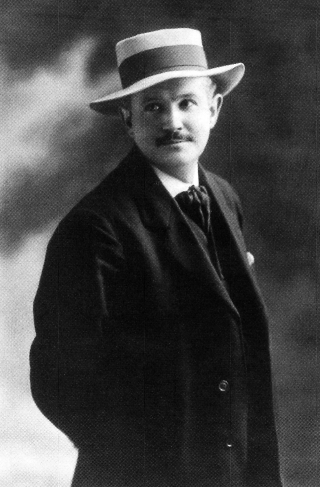
Gabriel Dupont, 1901, credit Wikipedia
ENDNOTES, February 2022
In this edition: Chopin, Schumann, Tchaikovsky and Dupont, performed by Severin von Eckardstein, Second Symphony by Thomas Larcher, played by the Finnish Radio Symphony Orchestra, reviewed by Stuart Millson
The German pianist, Severin von Eckardstein, has enjoyed much acclaim across Europe, particularly among audiences in Paris and Biarritz. Not only has the pianist given his own interpretation of well-loved repertoire, such as Chopin and Schumann, but he has also revived the name of the French composer, Gabriel Dupont (1878-1914), a supremely gentle, lyrical scene-painter, known chiefly for an atmospheric sequence entitled La maison dans les dunes – four movements from which appear on a new CD from the Artalinna label. Entitled: Dans les dunes, par un clair matin; Voiles sur l’eau; Le soir dans les pins; Clair d’étoiles – each element seems to bring with it a breeze of summer, as clouds hang like veils in the sky.
Debussy, of course, comes to mind whenever such impressionist-type works are mentioned, yet Dupont’s style exudes, perhaps, more of a directness of style; a feeling of vignettes, or short “watercolours” in music, which the composer manages to pull back from the dazzling, dizzying heights of late-romanticism, or full-blown impressionism. Instead, we are content to wander quietly with Dupont, by pleasing landscapes – on a coast with a wide horizon, but where in the solitude, mysteries can also exist.
To Chopin’s Polonaise-fantasie in A-flat Major, Op. 61, the 12-minute work which opens the disc, von Eckardstein brings a similar sense of the luminous – the well-known, somewhat solemn opening bathed in a definite feeling of light and warmth, slowly unfolding (rather than full of portent) as if the pianist had positioned himself on the Mediterranean coast, serenading the sunset itself. Aided by what can only be described as a recording as near as perfect as one could wish for (the soloist balanced by a sense of “air” – in other words, not a trace of dryness or microphones being too close to the instrument); every work on this rich, varied album conveys – as Pierre-Yves Lascar puts it in his programme note – von Eckardstein’s “rigour not rigidity”.
Schumann’s great “kaleidoscope of humours”, Davidsbündlertänze, an important repertory piece for most virtuoso pianists, is the longest item on the disc – and again, our soloist neither overplays his hand, nor misses any of the passion and expression of this mid-19th-century German romantic. After the concentration of such a demanding work, how appropriate (and brow-mopping) that we should come down to earth with Tchaikovsky’s Chant élégiaque, from his 18 pieces, Op. 72. A wistful coda to the Schumann.
In complete contrast, we turn to the 21st-century Austrian composer, Thomas Larcher – a figure preoccupied by our troubled times. His symphony, entitled Kenotaph (2015-16), is a memorial, not to any military or national cause, but an impassioned meditation on the loss of life during the contemporary exodus of refugees from the Middle East. No matter where one stands on this issue – and irrespective of any political interpretation or attempt to point the finger of blame – the basic fact remains that a great many innocent people have lost their lives by drowning in the Mediterranean in their attempt to leave intolerable conditions in their home countries. And this is the point of the symphony: it is, purely and simply, their memorial.
Larcher’s style brings to mind the enthralling, sinister atmosphere and unfolding sense of seismic, terrifying events, which Stravinsky generates in his Symphony in Three Movements. There is also a Sibelius-like darkness – a nervous step-by-step development – and the ghostly, enigmatic, percussive, tension of Shostakovich’s final symphonic statements also come to mind. But what is absolutely clear is the composer’s complete control of deep emotional forces – powerfully interpreted by the Finnish Radio Symphony Orchestra under Hannu Lintu – and his command of a modern, yet not completely atonal style. The stark realities of the lives lived and lost in our own age of anxiety are told with merciless precision by Larcher.
An orchestral song-cycle (Mahlerian in aspect) performed by André Schuen, baritone, is the second work on this disc from the Ondine label – a setting of Austrian author and poet, Ingeborg Bachmann. Entitled Die Nacht der Verlorenen (The Night of the Lost), it is unflinching in its treatment of such experiences as attempted suicide, addiction and alcoholism. A chilling, nightmarish beginning – icy, uncomfortable – sets the scene for strident brass chords, before the baritone’s lament: “Everything is lost, the poems first,/then sleep, then after that the day…”

Ingeborg Bachmann, credit Wikipedia
CD details: Severin von Eckardstein, recital, catalogue reference, ATL-A032.
Larcher, Symphony No. 2, Finnish Radio Symphony Orchestra, Ondine label, ODE 1393-2.
Stuart Millson is the Classical Music Editor of The Quarterly Review











And Endnote to end Endnotes, even if off message: the Ralph Vaughan Williams Memorial Library is purging its content of racism. The Sunday Telegraph recently said that Wagner was “synonymous” (sic) with “Nazi Germany”. RVW is usually described as the most quintessentially English composer, and RW died 50 years before the Nazis came to power.
My new folk song to add to Endnotes:
“You push the Far Left in, you drive the Pale Males out,
In, out, shake it all about,
You do the wokey chokey, and turn it all around.
That’s what it’s all about!”